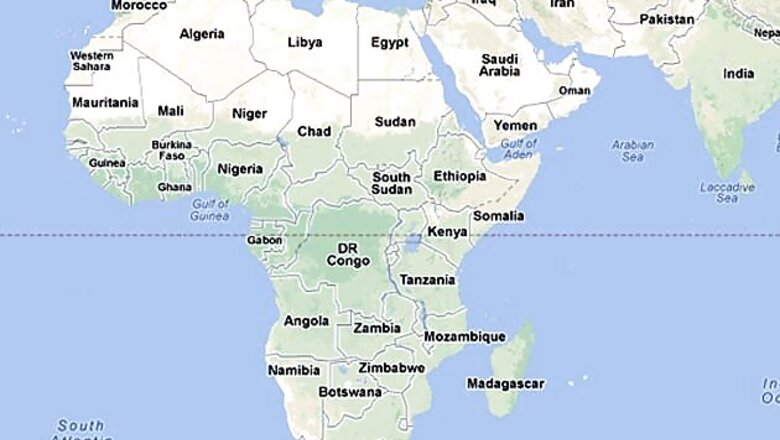
views
Economies of Africa are transforming rapidly mostly based on natural resource development. Amongst the fastest growing economies over the last decade, it has been creating its own set of concerns centred around resource consumption and production. A 2012 UNCTAD report on Africa highlights that while growth is occurring in Africa, it is not productivity enhancing growth, but rather based on commodity extraction. In fact, the study notes that manufacturing, as a share of domestic output, has been declining. The report, which covers the period of 1980-2008, suggests that while over half of the material extraction in Africa is biomass, the share of non-renewable resources in total material extraction has increased during this period. Since these resources are exhaustible, the rates of extraction have implications for long term development and availability.
More immediately, however, there are three key areas of concern with regard to resource use in Africa: land use, water use and energy use. Land degradation and cover changes contribute to inefficient land use across many parts of Africa. Water is a precious commodity and the potential for conflict over water exists especially in the Tigris-Euphrates and Nile river basins; energy use is characterised by low access to modern energy sources. Biomass energy forms the bulk (47 per cent) of Africa's total final energy supply; in Sub Saharan Africa, this ranges between 70-90 per cent. The continent is energy and mineral rich: it contains 9.7 per cent of global oil resources, 7.8 per cent gas, 5.6 per cent coal and 17 per cent of hydro potential. But despite this energy resource wealth, its per capita electricity consumption is low. Nearly 60 per cent of commercial energy produced is exported out of the continent. Over three fourths of energy produced and consumed is in a few countries, primarily: South Africa, Egypt, Algeria, Nigeria and Libya. It is also richly endowed with mineral resources - bauxite, gold, platinum, diamond, manganese and coal, but also more critical strategic minerals such as chromite, cobalt, vermiculite, zirconium, titanium and phosphate. Most of these strategic minerals are concentrated in South and Central Africa.
The growth in global demand for materials has led to increased commodity extraction by international oil and gas and mining companies in countries of Africa which have become the epicentre of mining activity. There are reports of land grabs and water stresses around this mining activity, as are reports of conflicts and civil wars being funded by mineral revenues. Current concerns with absolute increases in mineral development in these mineral-rich countries are around their environmental and social footprints and potential to stoke conflict, more than the availability of the mineral resource. Africa needs to develop its material wealth to lift its people out of poverty but there is need of attention to the externalities around this development. As of now, its material consumption per capita is about half of that of the global average of 10.4 t per capita. Given the correlation between material use and HDI, and given that the HDI of most African countries are still below the global average and several among the lowest, one can say that Africa needs to increase its absolute material consumption to lifts its people out of poverty.
The debate around a resource-efficient path for Africa, therefore, is not about reducing its resource consumption per capita which in any case is low, but about ensuring a more sustainable, equitable and efficient approach to natural resource development and use. DSDS 2013 will focus on one of these aspects - resource efficiency, and the discussion will focus on three key questions:
A) Does Africa need to think about resource efficiency given its current low consumption rates but growing water and land stresses, projected impacts and stresses on natural resources from climate change, and fast growing commodity extraction rates? What evidence is there on its resource and material consumption and productivity?
B) If Africa were to follow a resource-efficient path, what should be the attributes of such a path? What would we mean by efficient resource use in the context of Africa?
C) How can local aspirations and complexity get reflected in the chalking of such a path? Which sectors are particularly important to enhance resource efficiency? Which sectors are especially important to move the economy away from resource based growth to more job-oriented growth paths?
The DSDS Session on Africa will have representations from Djibouti, Ethiopia, Mauritius, Gambia, Nigeria, Sierra Leone but also from UNECA and ECOWAS.
Dr Ligia Noronha is executive director at TERI.


















Comments
0 comment